Abstract
The role of photoperiod and temperature in the cold acclimation of living Haralson apple (Pyrus malus L.) bark was studied in the autumn under field conditions in Minnesota. Whole trees, or different parts of the same tree, were exposed to either natural conditions, artifically lengthened days, or artificially warmed nights, or they were subjected to manual leaf removal. The results indicate that acclimation occurs in two stages which are induced by short days and frost (or low temperature), respectively. Leaves were stimulated by short days to produce translocatable substance(s) which promoted cold acclimation of the living bark. Leaves of plants grown under long days were the source of a translocatable substance(s) which inhibited acclimation. The second stage of hardiness, induced by frost (or low temperature), did not involve translocatable factors.
Inductive short days could overcome the effect of high temperatures, and low temperatures could overcome the effect of noninductive long days in promoting the first stage of acclimation to −30 C. Frost was necessary for maximum hardiness to −55 C. Plants grown in a greenhouse, in the autumn, under long days and high temperatures acclimated slightly in spite of the noninductive conditions. Short days and frost (or low temperatures) appeared to regulate different and independent endogenous acclimation processes.
Full text
PDF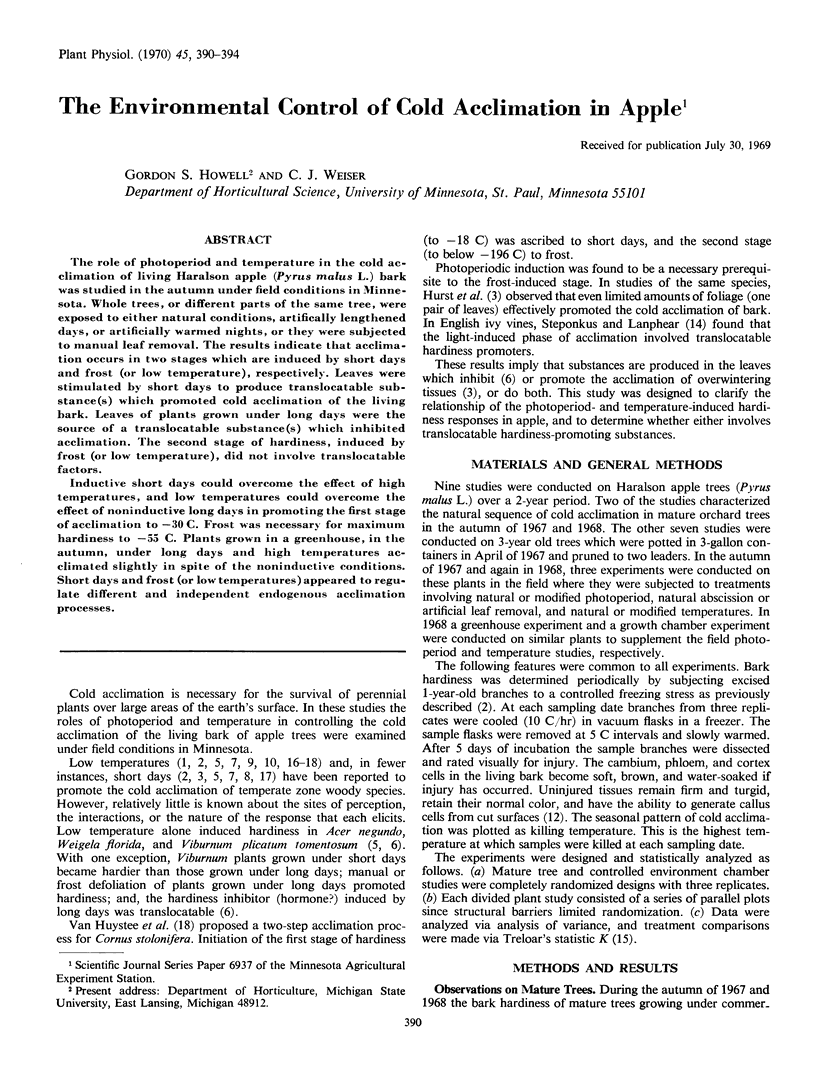
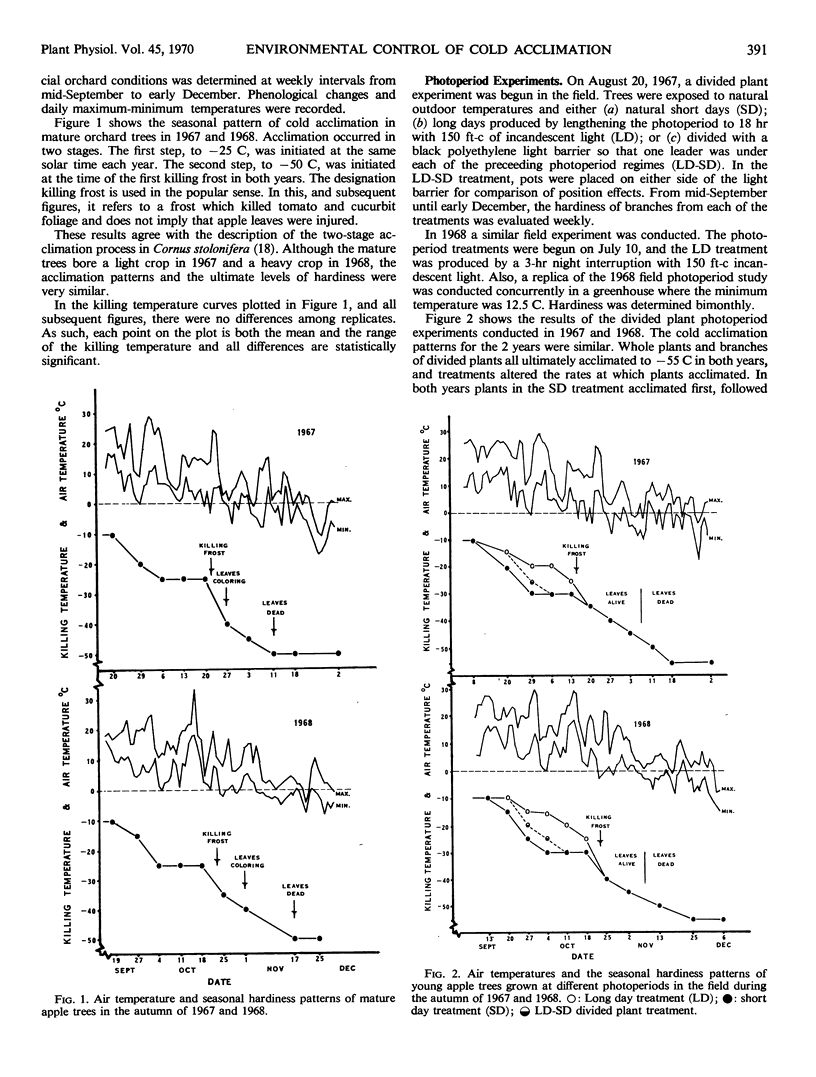
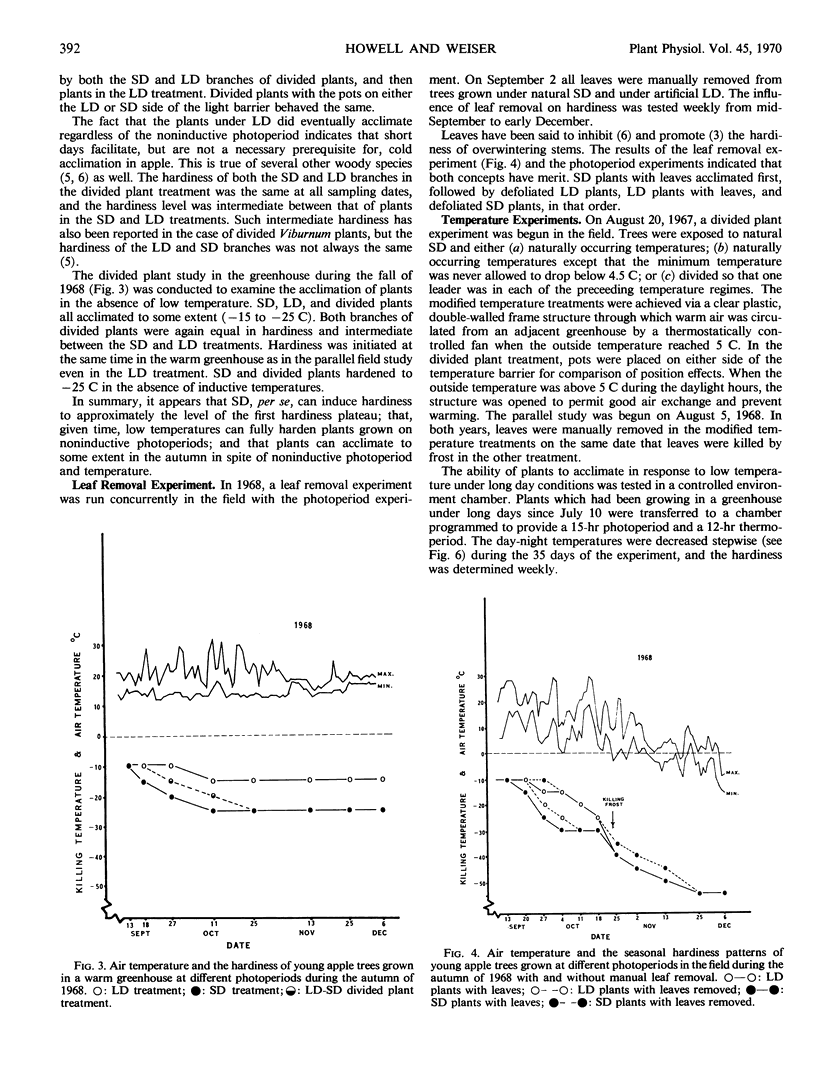
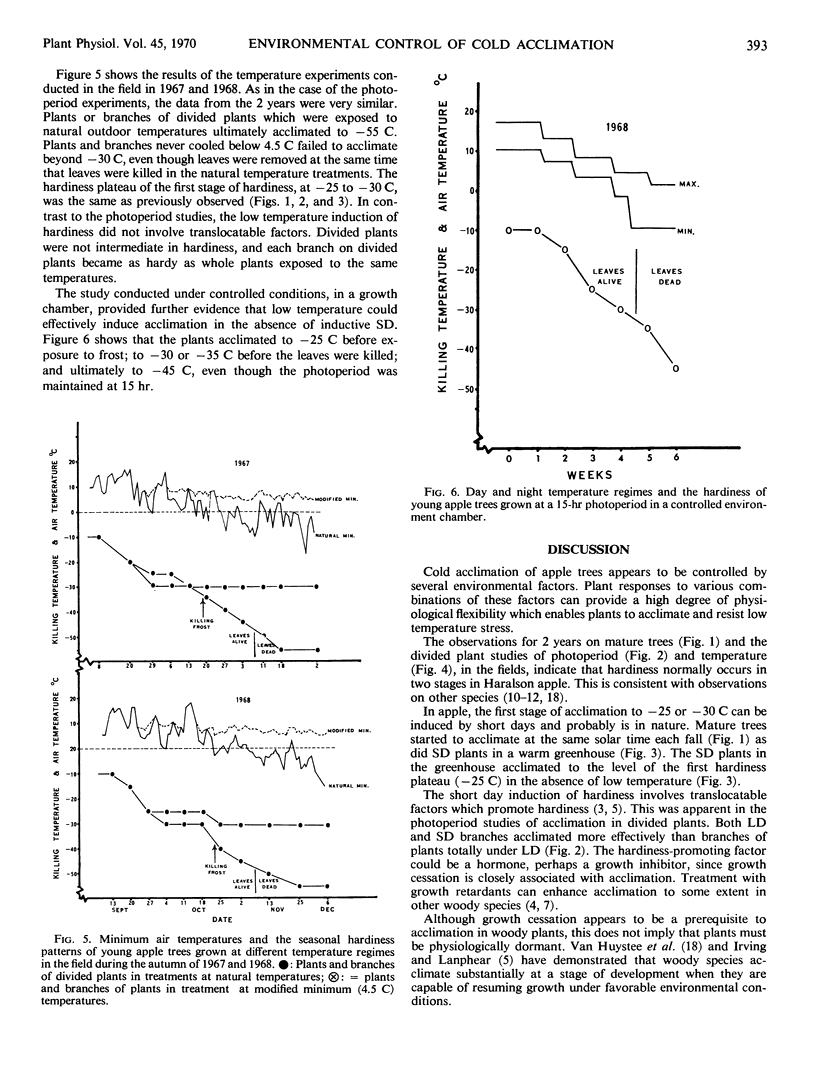
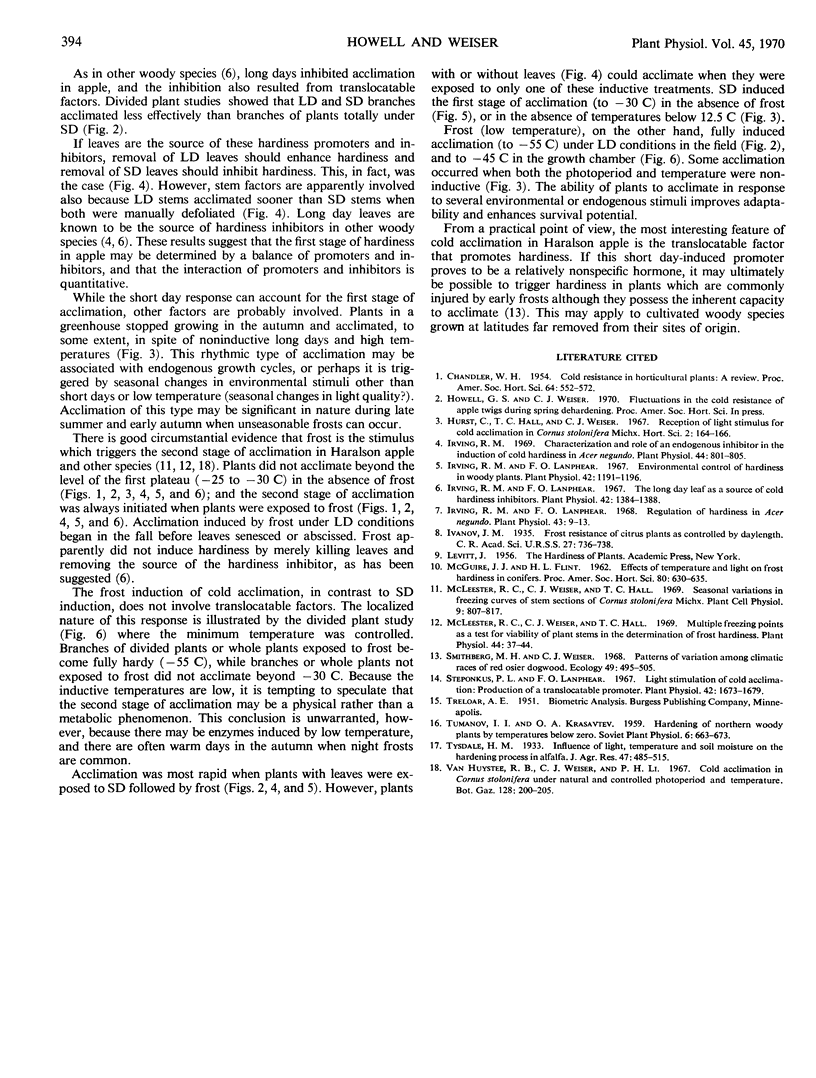
Selected References
These references are in PubMed. This may not be the complete list of references from this article.
- Irving R. M. Characterization and Role of an Endogenous Inhibitor in the Induction of Cold Hardiness in Acer negundo. Plant Physiol. 1969 Jun;44(6):801–805. doi: 10.1104/pp.44.6.801. [DOI] [PMC free article] [PubMed] [Google Scholar]
- Irving R. M., Lanphear F. O. Environmental control of cold hardiness in woody plants. Plant Physiol. 1967 Sep;42(9):1191–1196. doi: 10.1104/pp.42.9.1191. [DOI] [PMC free article] [PubMed] [Google Scholar]
- Irving R. M., Lanphear F. O. Regulation of Cold Hardiness in Acer negundo. Plant Physiol. 1968 Jan;43(1):9–13. doi: 10.1104/pp.43.1.9. [DOI] [PMC free article] [PubMed] [Google Scholar]
- Mac Irving R., Lanphear F. O. The long day leaf as a source of cold hardiness inhibitors. Plant Physiol. 1967 Oct;42(10):1384–1388. doi: 10.1104/pp.42.10.1384. [DOI] [PMC free article] [PubMed] [Google Scholar]
- McLeester R. C., Weiser C. J., Hall T. C. Multiple freezing points as a test for viability of plant stems in the determination of frost hardiness. Plant Physiol. 1969 Jan;44(1):37–44. doi: 10.1104/pp.44.1.37. [DOI] [PMC free article] [PubMed] [Google Scholar]
- Steponkus P. L., Lanphear F. O. Light stimulation of cold acclimation: production of a translocatable promoter. Plant Physiol. 1967 Dec;42(12):1673–1679. doi: 10.1104/pp.42.12.1673. [DOI] [PMC free article] [PubMed] [Google Scholar]


